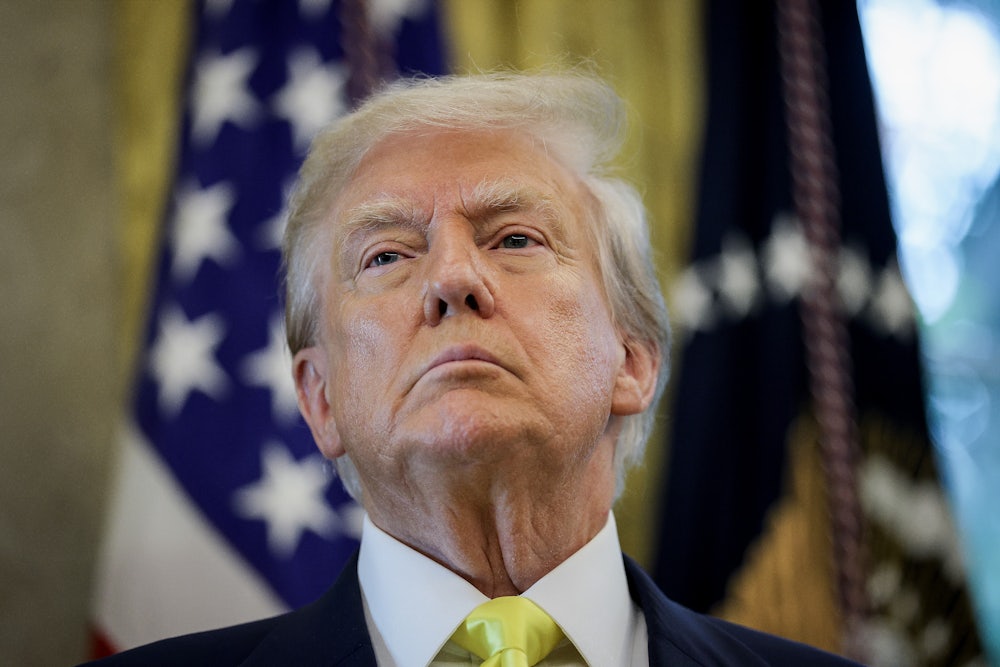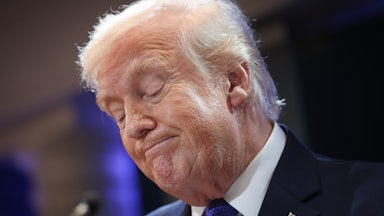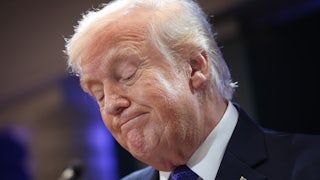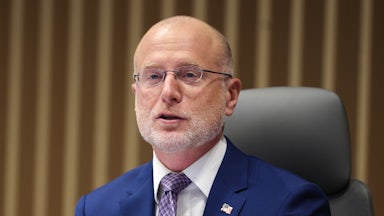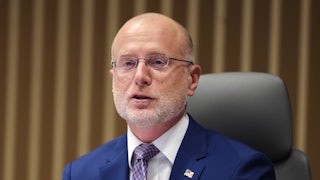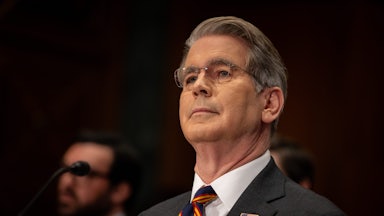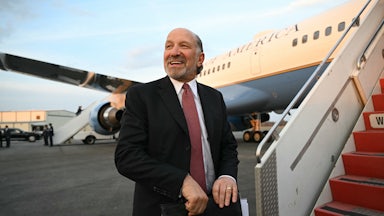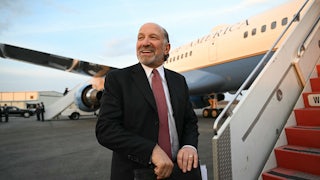The dominant business news story remains President Donald Trump’s push to revive fascist corporatism (the business press is too polite to call it that) by regulating the economy out of his back pocket, with the latest news that Trump wants to use CHIPS and Science Act grants to buy the government a 10 percent stake in Intel. So I’m going to write once again about these unsettling developments, this time through the prism of Trump’s antitrust policy.
I love antitrust advocates to pieces, but they aren’t always as discriminating as good sense would dictate. In February, Matt Stoller, author of the antitrust popular history Goliath and research director of the (pro-antitrust) American Economic Liberties Project, cried hallelujah on Substack that Trump’s Federal Trade Commission and Justice Department antitrust division had adopted President Joe Biden’s antitrust guidelines. “To put it in a way that conservatives would appreciate,” Stoller wrote, “the Trump administration just declared there will be no more DEI for the merger and finance expert class who have used consolidation to hollow out American communities.”
But last week, the Trump administration revoked a sweeping 2021 executive order issued by President Joe Biden implementing a “whole-of-government competition policy” to halt and reverse market concentration. The Biden antitrust team, led by the FTC’s Lina Khan and the Justice Department antitrust division’s Jonathan Kanter, put its money where its mouth was. It ended up filing two and a half times as many anti-monopoly lawsuits as either the first Trump administration or the Obama administration, and it brought to trial four times as many billion-dollar mergers. (These statistics are from the American Economic Liberties Project.)
Trump, by contrast, after reentering office, fired the FTC’s two Democratic commissioners, even though that was illegal. (Though perhaps not much longer, because the Supreme Court signaled it will reverse the relevant precedent.) House appropriators are preparing, on Trump’s recommendation, to cut the FTC’s funding. And a federal judge had to intervene last week to halt an unconstitutional FTC investigation of Media Matters for America for reporting that antisemitic Twitter posts allowed by Elon Musk after he took over the social media platform (renamed X) were adjacent to advertisements from major companies like Apple and Oracle—news of which very predictably led to an advertiser boycott. (A secondary effect was that I permanently deleted my Twitter account.)
Let’s pause for a moment at this last outrage. The same Trump administration that defunds universities for tolerating student protests against Israel’s Gaza slaughter is trying to punish Media Matters for tipping off corporate America that its Twitter ads appeared alongside tweets from, among others, a pro-Hitler group, a leading pro-Nazi group, and five Holocaust deniers. Can anybody doubt that the FTC did this because Elon Musk spent $291 million to elect Donald Trump and secure him a Republican Congress? Can anybody further doubt that genuine antisemitism offends Trump not one whit? Twitter canceled the offending accounts after Media Matters flagged them, but Musk also filed a flurry of retaliatory lawsuits against Media Matters, none of them successful.
But I digress.
At Justice’s antitrust division under Trump, the deputy attorney general proposed closing some field offices and, according to Jonathan B. Baker, law professor emeritus at American University, “many experienced staff, concerned about their work environment, have left the agencies or are planning to do so.” Roger Alford was one of two deputies to antitrust chief Gail Slater fired recently for alleging cronyism in an antitrust settlement with Hewlett Packard. Alford said Monday (per Dave Michaels of The Wall Street Journal) that Attorney General Pam Bondi’s chief of staff, Chad Mizelle, is meddling with antitrust enforcement and “makes key decisions depending on whether the request or information comes from a MAGA friend.” The Journal’s Michaels and Annie Linskey previously reported that, working through Trump ally Mike Davis, Hewlett Packard settled by promising—off the books—to create new jobs at a facility in the United States. The pledge was not disclosed in court documents, and the Justice Department’s Office of Legal Counsel is currently trying to figure out how to make this look like it’s in accordance with the law.
Overall, antitrust actions are both fewer under Trump and more tailored to his preferences. A recent report from the Nader-founded nonprofit Public Citizen found that Trump’s second administration has thus far either halted or withdrawn one-third of all ongoing investigations and enforcement actions against tech companies. Those same tech companies collectively spent, during and after the 2024 election cycle, $222 million on Trump businesses, $25 million on Trump’s inauguration, and $610 million to elect Republicans (more than half of this last from Musk). Nearly half the dropped enforcement actions were against crypto, a business sector the president recently joined. As I’ve noted previously, Trump’s crypto interests are entirely kleptocratic; it’s not clear the man’s invested so much as a penny, yet they’ve earned him about $1 billion.
In light of all this, can anybody wonder why Trump wants to eliminate a “whole-of-government” policy against antitrust? The whole of government just gets in the way of turning the threat of antitrust action into a protection racket. Remember, many of these tech antitrust investigations were initiated by Trump himself in his first term. That makes Trump the guy who throws a rock through your window so he can sell you a new pane of glass.
At the risk of being tedious, I’ll repeat what I said yesterday: Trump’s approach to regulation is Tutto nello Trump, nienta al di fuori della Trump, nulla contro lo Trump. Benito Mussolini’s original, translated into English, was “Everything within the State, nothing outside the State, nothing against the State,” but with Trump (as with Il Duce) any distinction between the state and its autocratic leader is wholly imaginary.
